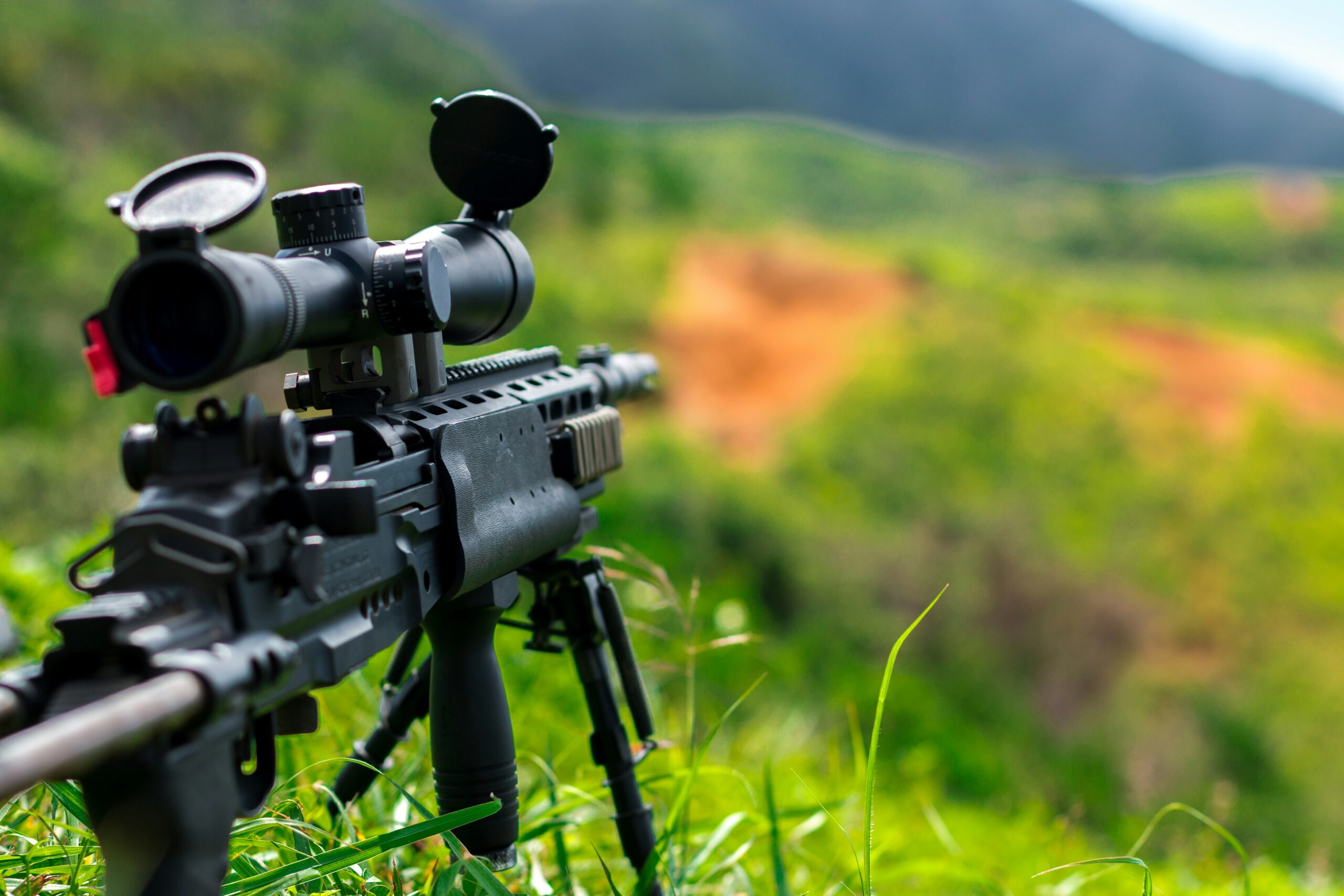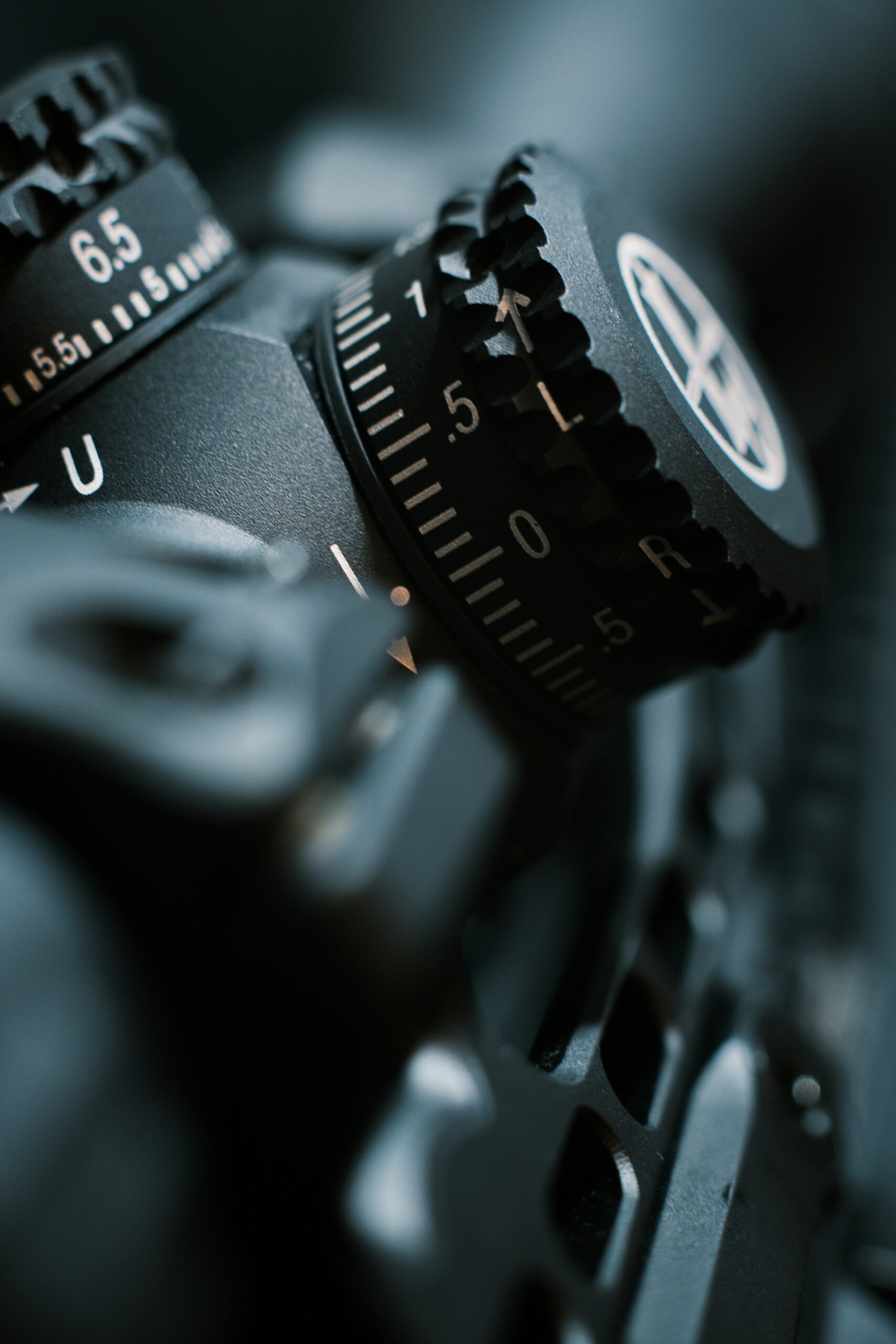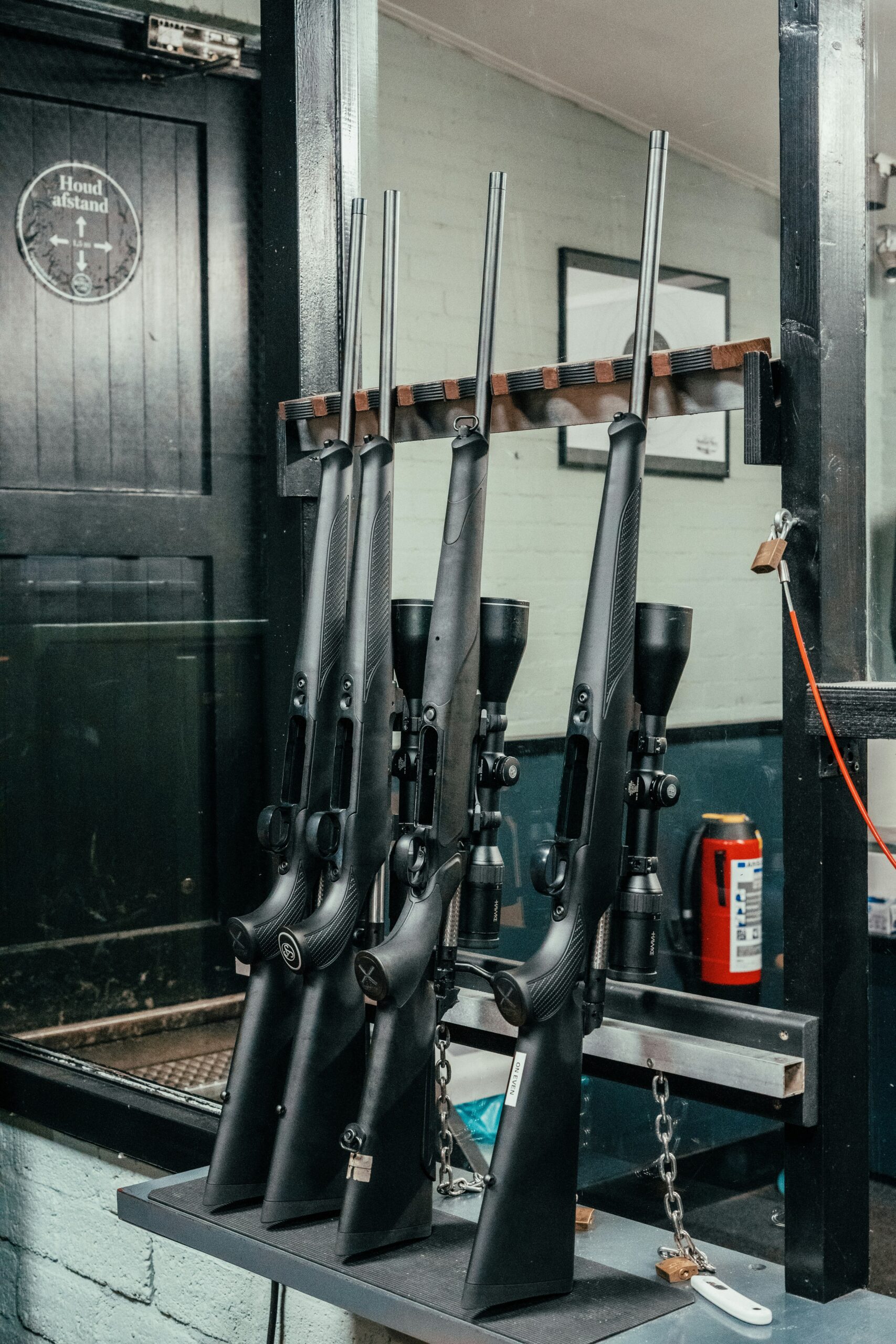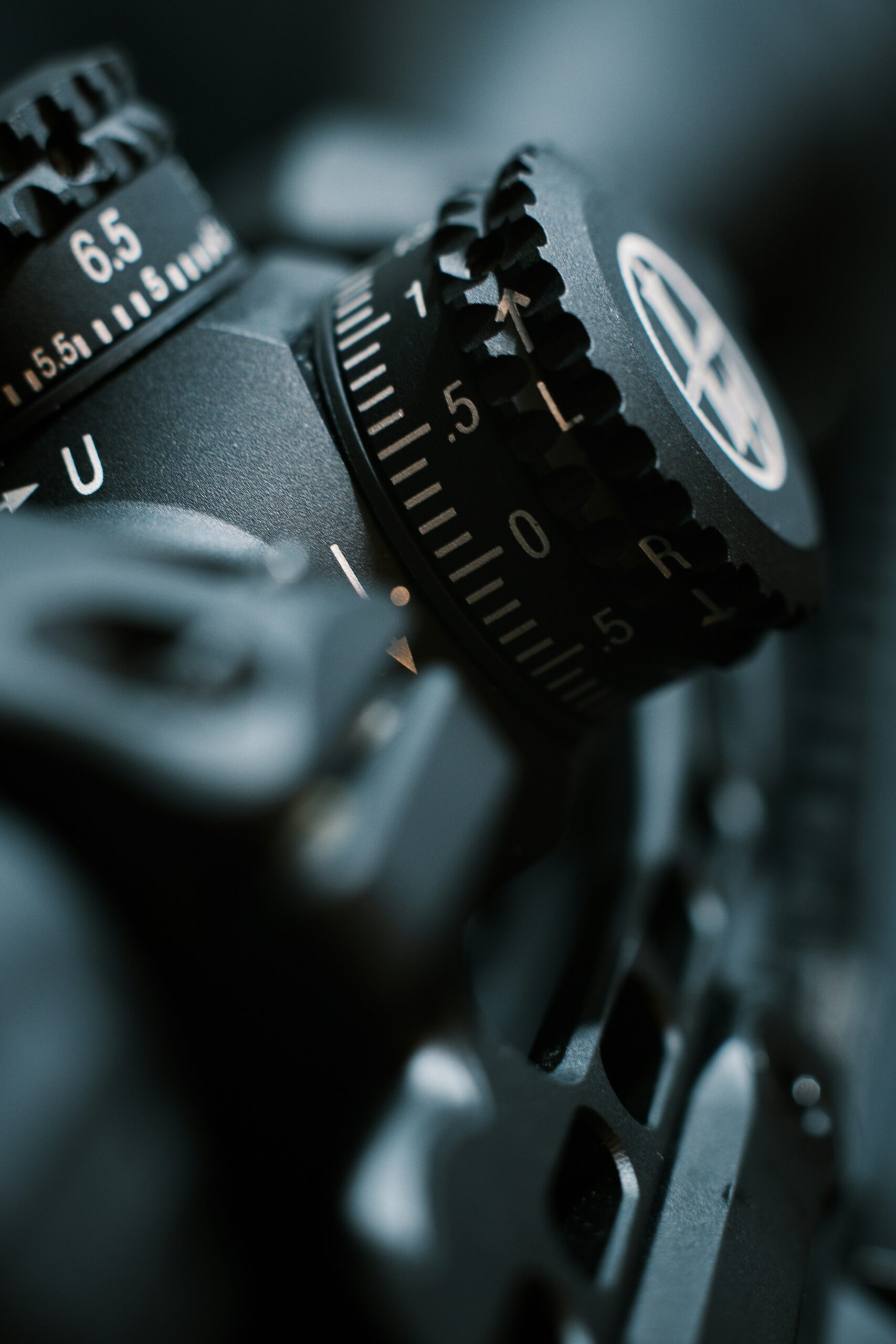Imagine being able to hit targets accurately from long distances with just a rifle scope. It may sound too good to be true, but the truth is, using a rifle scope for long-range shooting is indeed possible. Whether you’re an experienced shooter or just starting out, this article will explore the benefits and limitations of using a rifle scope for long-range shooting, providing you with valuable insights that could take your shooting skills to the next level. So, grab your rifle and let’s dive into the fascinating world of long-range shooting with a rifle scope.
Understanding the Basics of Rifle Scopes
The Purpose of Rifle Scopes
Rifle scopes are essential tools for shooters who engage in long-range shooting. Their primary purpose is to magnify the target, allowing you to see it more clearly and make accurate shots from a significant distance. By enhancing your vision and providing precise aiming points, rifle scopes help improve your accuracy and minimize the margin of error.
The Different Parts of a Rifle Scope
To understand how rifle scopes work, it’s vital to familiarize yourself with their different components. A typical rifle scope consists of an eyepiece, an ocular lens, a main tube, a magnification adjustment ring, a reticle, windage and elevation adjustment turrets, and an objective lens. Each part plays a crucial role in ensuring optimal performance and functionality.
How a Rifle Scope Works
When you look through a rifle scope, the objective lens gathers the incoming light and directs it towards the magnification system. The magnification adjustment ring allows you to increase or decrease the magnification level, enabling you to zoom in on distant targets. The light then passes through the reticle, which provides aiming points for precise targeting. Finally, the ocular lens focuses the image and delivers it to your eye, creating a clear and magnified view of the target.
The Concept of Long-Range Shooting
Defining Long-Range Shooting
Long-range shooting typically refers to engaging targets that are located beyond 300 yards. This type of shooting requires exceptional marksmanship skills, equipment, and a deep understanding of various external factors such as wind, bullet drop, and atmospheric conditions. Long-range shooting demands precision, patience, and the ability to make accurate adjustments to account for these variables.
The Challenges of Long-Range Shooting
Engaging targets at long distances presents several challenges that shooters must overcome. One major challenge is the effect of gravity on the bullet’s trajectory, leading to significant bullet drop. Additionally, wind becomes a critical factor, as even a slight breeze can cause a significant deviation in the bullet’s path. Other factors such as atmospheric conditions, elevation, and target identification can also pose challenges for long-range shooters.
Equipment Used in Long-Range Shooting
Long-range shooting requires specialized equipment to ensure maximum precision and accuracy. Apart from a high-quality rifle and appropriate ammunition, one of the most critical pieces of gear is a long-range rifle scope. These scopes are specifically designed to provide high magnification, large objective lenses, and precise reticles suitable for long-range shooting. Additionally, shooters may utilize bipods, rangefinders, and wind meters to enhance their long-range shooting capabilities.

Types of Rifle Scopes
Fixed Power Scopes
Fixed power scopes have a single magnification level and are most commonly used in hunting and tactical shooting scenarios. They offer simplicity, durability, and excellent optical clarity. While fixed power scopes lack the versatility of adjustable magnifications, they excel in situations where you consistently engage targets at similar distances.
Variable Power Scopes
Variable power scopes offer the flexibility of changing magnification levels, allowing you to adapt to various shooting scenarios. These scopes typically have a minimum and maximum magnification range, offering a wide field of view at lower magnifications and increased target detail at higher magnifications. Variable power scopes are popular choices for both hunting and long-range shooting due to their versatility.
Target Scopes
Target scopes are designed specifically for precision shooting competitions and long-range target engagement. These scopes often have high magnification levels, large objective lenses, and advanced reticles with precise aiming points. While target scopes may be bulky and heavy, they provide exceptional clarity and precision, making them ideal for serious long-range shooters who prioritize accuracy over portability.
Sniper Scopes
Sniper scopes are specially designed for military and law enforcement professionals who engage in long-range shooting operations. These scopes excel in tactical situations, offering a wide range of magnifications, durable construction, and features such as illuminated reticles and bullet drop compensators. Sniper scopes are typically built to withstand harsh conditions and deliver superior performance in demanding environments.
Key Features of a Long-Range Rifle Scope
High Magnification
When selecting a rifle scope for long-range shooting, high magnification is crucial. Higher magnification allows you to zoom in on distant targets, making them appear larger and clearer in your field of view. A scope with a higher magnification range can help compensate for the bullet drop and improve your accuracy at long distances.
Large Objective Lens
A large objective lens is beneficial for long-range shooting as it allows more light to enter the scope, resulting in a brighter and clearer image. Additionally, a larger objective lens provides a wider field of view, enabling you to better track moving targets and detect potential obstacles or hazards in your surroundings.
Reticle Types Suitable for Long Range
Choosing the right reticle is essential for long-range shooting. Reticles with precise aiming points, such as Mil-Dot or BDC (Bullet Drop Compensator), can assist in compensating for bullet drop and windage. Illuminated reticles can also be advantageous in low-light conditions, providing enhanced visibility and target acquisition.
Adjustment Ranges
Long-range shooting requires precise adjustments for windage and elevation. A rifle scope with ample adjustment ranges allows you to compensate for the bullet’s trajectory over long distances accurately. Look for scopes with turrets that offer precise and repeatable adjustments, ensuring that you can make fine-tuned corrections without losing zero.

The Role of a Rifle Scope in Long-Range Shooting
Enhancing Accuracy
A rifle scope plays a pivotal role in enhancing accuracy during long-range shooting. The magnification allows for a more precise aiming point, making it easier to align the crosshairs or reticle precisely on the desired target. Additionally, the clarity of the image provided by the scope enables better shot placement, reducing the chance of misses and increasing overall accuracy.
Compensating for Bullet Drop
Bullet drop is a significant challenge when engaging targets at long distances. A rifle scope equipped with a suitable reticle and adjustment turrets allows you to compensate for bullet drop effectively. By making proper adjustments based on the projectile’s ballistics, you can ensure that your shots land precisely where you intend, even at extended ranges.
Improved Target Identification
Long-range shooting often involves engaging targets that are small and far away. Without a rifle scope, it can be challenging to identify and assess the target accurately. The magnification provided by a scope allows you to observe potential obstacles, calculate the distance to the target, and identify vital details such as the target’s position, stance, and potential threats in the vicinity. This improved target identification significantly enhances your ability to engage targets effectively.
Choosing a Rifle Scope for Long-Range Shooting
Considering Your Specific Needs
When selecting a rifle scope for long-range shooting, it’s essential to consider your specific needs and shooting preferences. Factors such as the intended shooting distance, shooting environment, desired magnification range, and weight limitations must all be taken into account. By understanding your unique requirements, you can choose a scope that best suits your shooting style and objectives.
Understanding the Scope Specifications
Scope specifications contain vital information about the scope’s capabilities and features. Pay close attention to specifications such as magnification range, objective lens diameter, reticle type, adjustment ranges, and build quality. Understanding these specifications will help you determine whether a particular scope meets your long-range shooting requirements.
Price Versus Quality
There is a wide range of rifle scopes available at various price points. While it can be tempting to prioritize a lower price, it is essential to balance cost with quality. Investing in a high-quality scope ensures durability, optimal performance, and better accuracy. Be wary of sacrificing crucial features and build quality for a lower price, as this may negatively impact your long-range shooting experience.
Brand Reputation
Consider the reputation and track record of the brands you are considering. Established scope manufacturers tend to have a history of producing reliable, high-quality products. Reading customer reviews, seeking recommendations from experienced shooters, and researching the brand’s reputation can give you valuable insights into the reliability and performance of the scope you are considering.

Common Mistakes to Avoid When Using a Rifle Scope for Long-Range Shooting
Misalignment of the Scope
Improperly mounting the scope can lead to misalignment, resulting in accuracy issues. It is crucial to ensure that the scope is securely mounted and aligned with the rifle’s bore. Take the time to properly zero the scope, adjusting windage and elevation according to your shooting preferences and ammunition ballistics. Regularly checking for any signs of scope movement or misalignment is essential to maintain accuracy.
Ignoring the Windage and Elevation Adjustments
Windage and elevation adjustments on your scope are critical for compensating for external factors such as wind drift and bullet drop. Failing to make the necessary adjustments when shooting at long distances can lead to significant deviations from the intended point of impact. Regularly practicing and understanding the adjustments needed for different distances and environmental conditions will greatly improve your accuracy.
Choosing the Wrong Reticle
Selecting a reticle that is not suitable for your shooting needs can hinder your long-range shooting performance. Reticles with precise aiming points, such as Mil-Dot or BDC, are popular choices for long-range shooting, as they assist in estimating distance and compensating for bullet drop. Choosing a reticle that aligns with your shooting style and preferences is critical to maximize the effectiveness of your rifle scope.
Maintaining Your Rifle Scope for Long-Range Shooting
Regular Cleaning
Proper maintenance and regular cleaning of your rifle scope are essential for optimal performance and longevity. Use a soft brush or cloth to remove any dirt, dust, or debris from the lenses and external surfaces. Avoid using harsh chemicals or abrasive materials that can scratch or damage the lens coatings. Regular cleaning ensures clear optics and prevents any debris from affecting your sight picture.
Proper Storage
When not in use, it is crucial to store your rifle scope properly to prevent damage. Keep the scope in a protective case or sleeve to shield it from impacts, dust, and moisture. Avoid exposing the scope to extreme temperatures or leaving it in direct sunlight for extended periods. Storing the scope in a cool, dry place will help maintain its performance and protect it from unnecessary wear and tear.
Checking and Re-Calibrating the Settings
Regularly check the windage and elevation adjustments on your scope to ensure they are functioning correctly. Over time, these adjustments may require re-calibration due to wear or environmental factors. Using a reliable boresighter or engaging in regular zeroing sessions can help maintain the accuracy and consistency of your rifle scope.
Practical Tips for Successful Long-Range Shooting with a Rifle Scope
Mastering the Basics of Marksmanship
Long-range shooting demands a high level of marksmanship skills. Prioritize improving fundamental shooting techniques such as breath control, trigger control, and body positioning. Practicing these skills will greatly enhance your ability to make precise shots at long distances and maximize the potential of your rifle scope.
Utilizing the Features of the Scope
Familiarize yourself with the features and settings of your rifle scope to make the most of its capabilities. Experiment with different magnification levels, reticle patterns, and adjustment ranges to find the combination that works best for your shooting style and preferences. Understanding how to adjust for bullet drop and windage using the scope’s features will greatly improve your accuracy.
Practicing Regularly
Consistent practice is key to becoming proficient in long-range shooting. Set aside dedicated practice sessions to refine your skills, focusing on engaging targets at various distances and environmental conditions. Regular practice not only sharpens your marksmanship but also familiarizes you with the behavior and capabilities of your rifle scope, allowing you to make better-informed decisions during live shooting scenarios.
Case Studies of Using a Rifle Scope for Long-Range Shooting
Performance of Various Brands
Comparing the performance of different rifle scope brands can provide valuable insights into their suitability for long-range shooting. Conducting thorough research and reading detailed reviews can help identify scopes that consistently deliver on their promises of accuracy, durability, and reliability. Understanding the experiences of other shooters can guide you in selecting a scope that meets your specific requirements.
Experiences of Professional Sharpshooters
Professional sharpshooters have extensive knowledge and experience in long-range shooting. Studying their experiences and techniques can offer valuable lessons and insights into maximizing the effectiveness of a rifle scope. Pay attention to the gear and equipment they use, as well as their approach to target identification, ballistics, and wind reading. Learning from experts in the field can greatly improve your own long-range shooting skills.
Impact of Technological Advancements on Rifle Scopes
Technological advancements have had a significant impact on the performance and capabilities of rifle scopes. Features such as illuminated reticles, integrated rangefinders, and advanced ballistics calculators have revolutionized the way shooters engage targets at long distances. Understanding the latest advancements in rifle scope technology can help you make informed decisions when selecting a scope that best suits your shooting style and objectives.
In conclusion, rifle scopes are indispensable tools for long-range shooting enthusiasts. Understanding the basics, such as the purpose and components of a rifle scope, is crucial in utilizing these devices effectively. By selecting the appropriate type of scope and considering key features, shooters can improve their accuracy and success in long-range shooting. Avoiding common mistakes, properly maintaining the scope, and mastering essential marksmanship skills are essential for maximizing the performance of a rifle scope. By applying practical tips and studying real-life experiences, shooters can enhance their long-range shooting capabilities and achieve greater precision and accuracy with a rifle scope.

